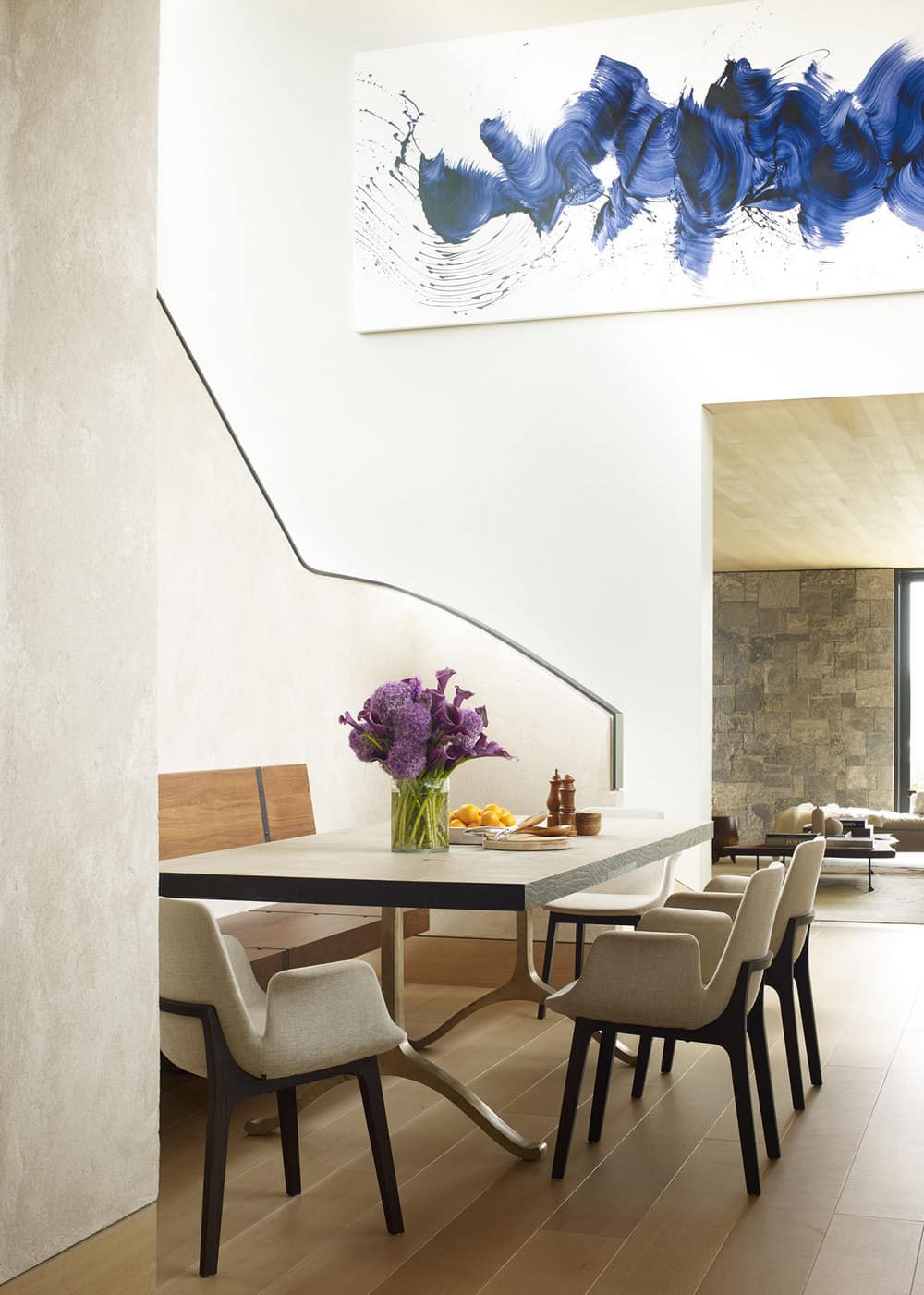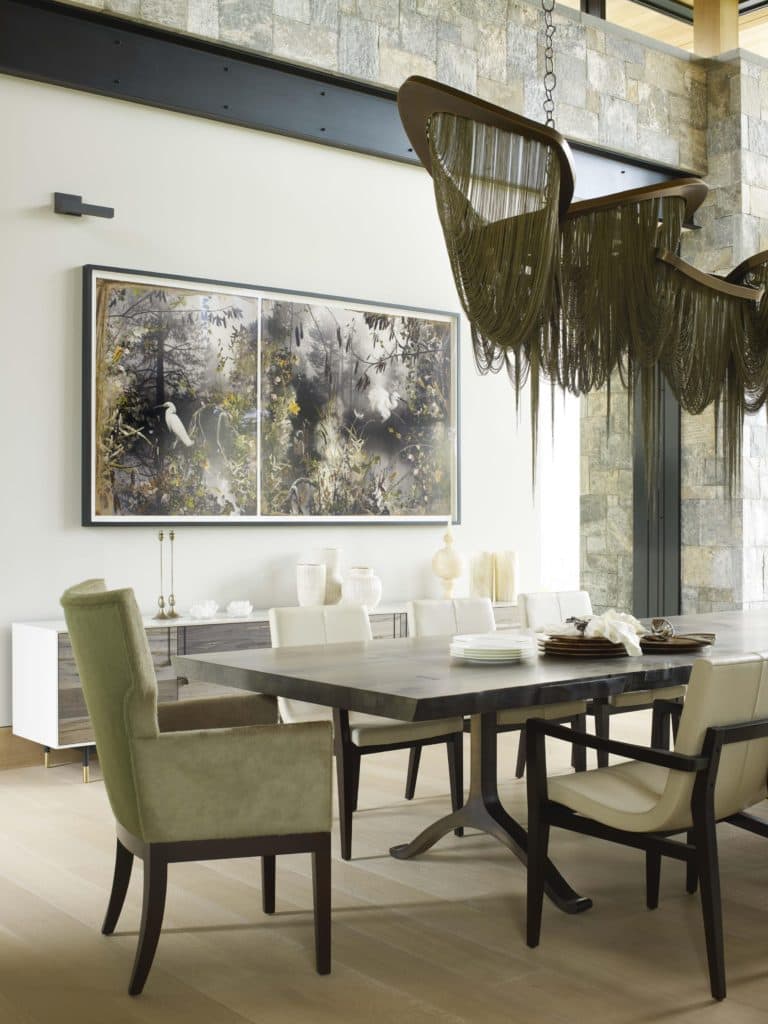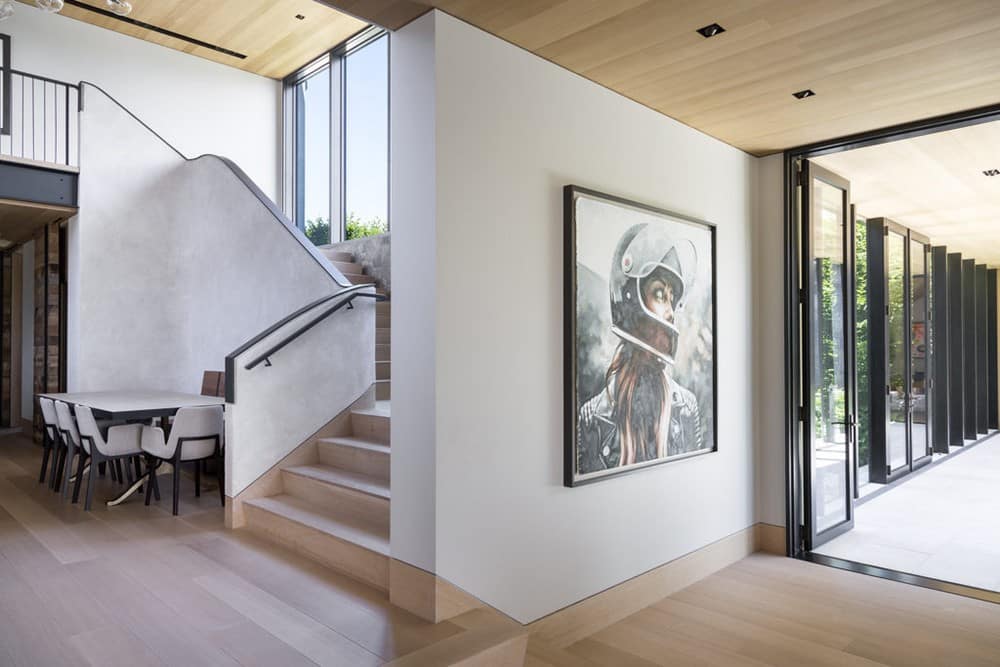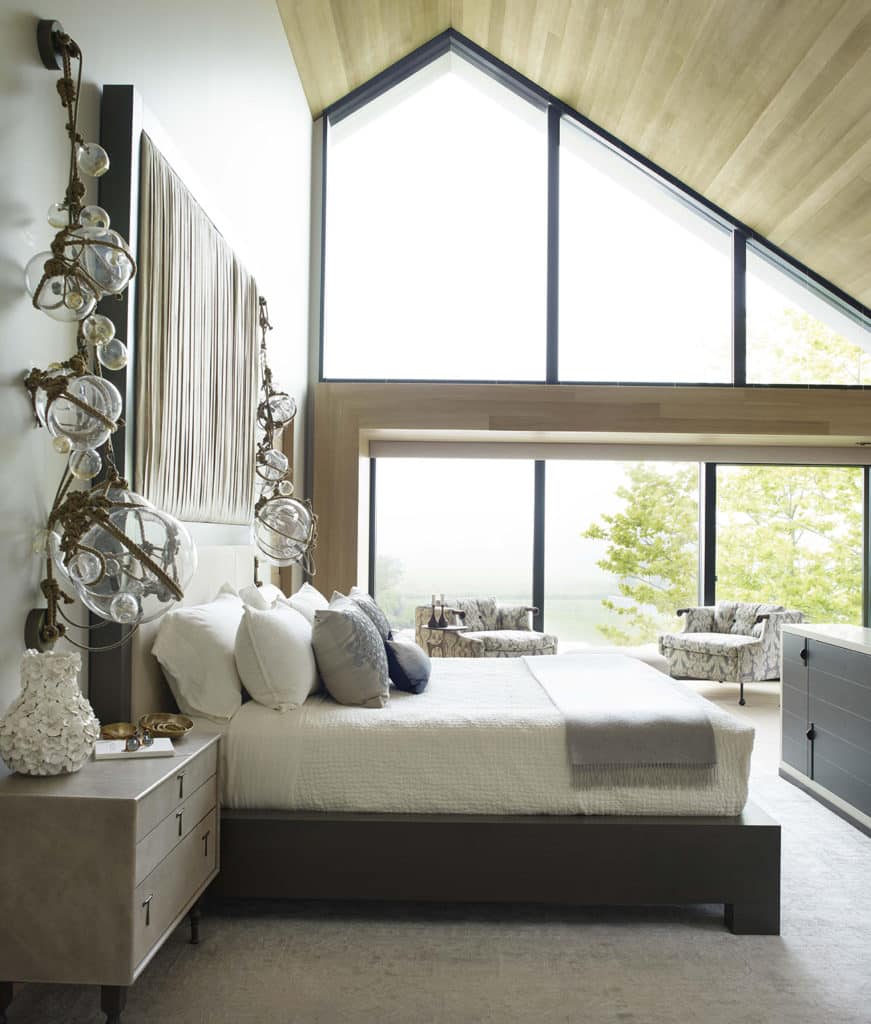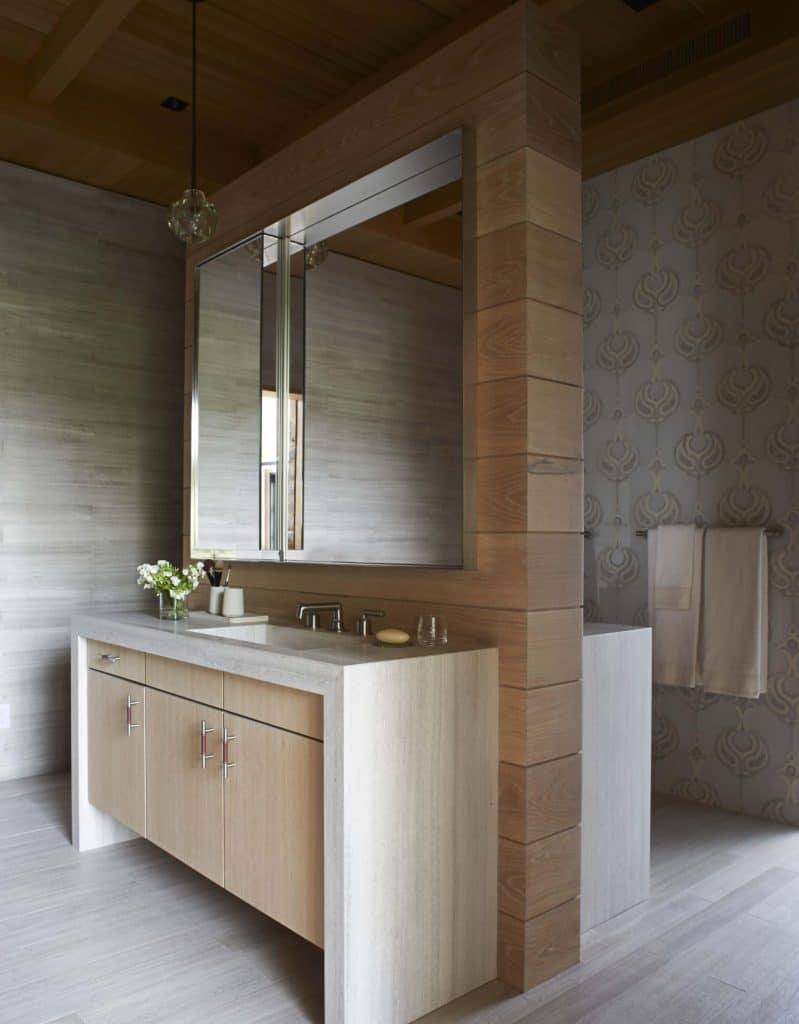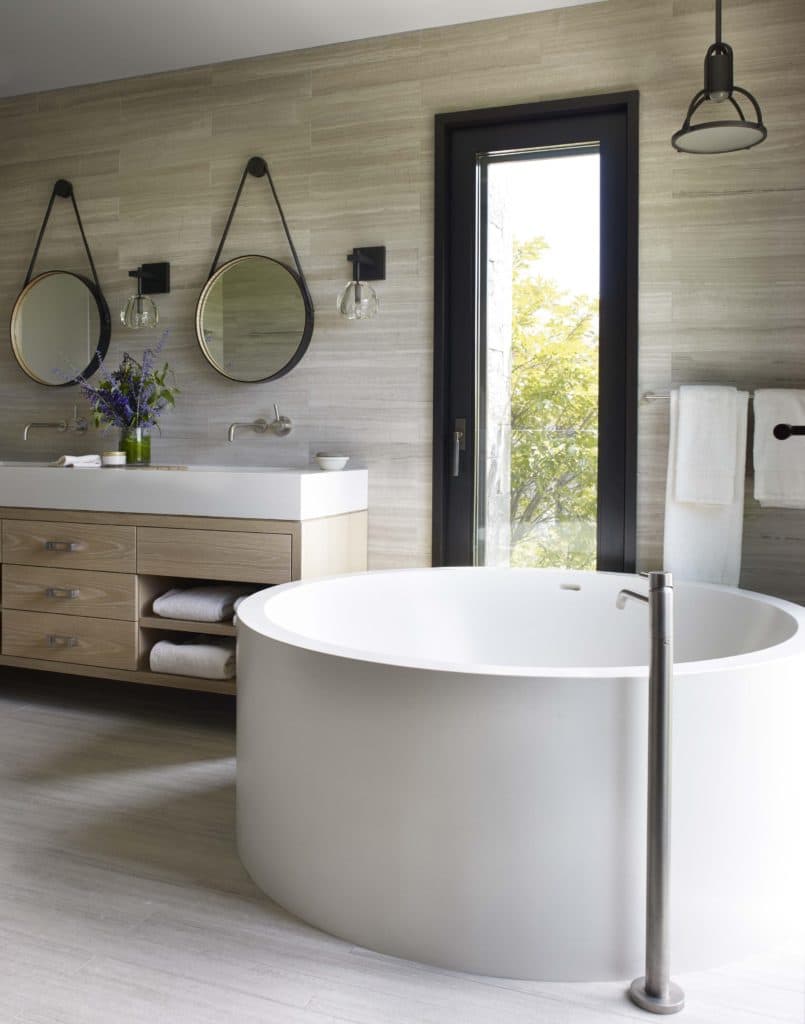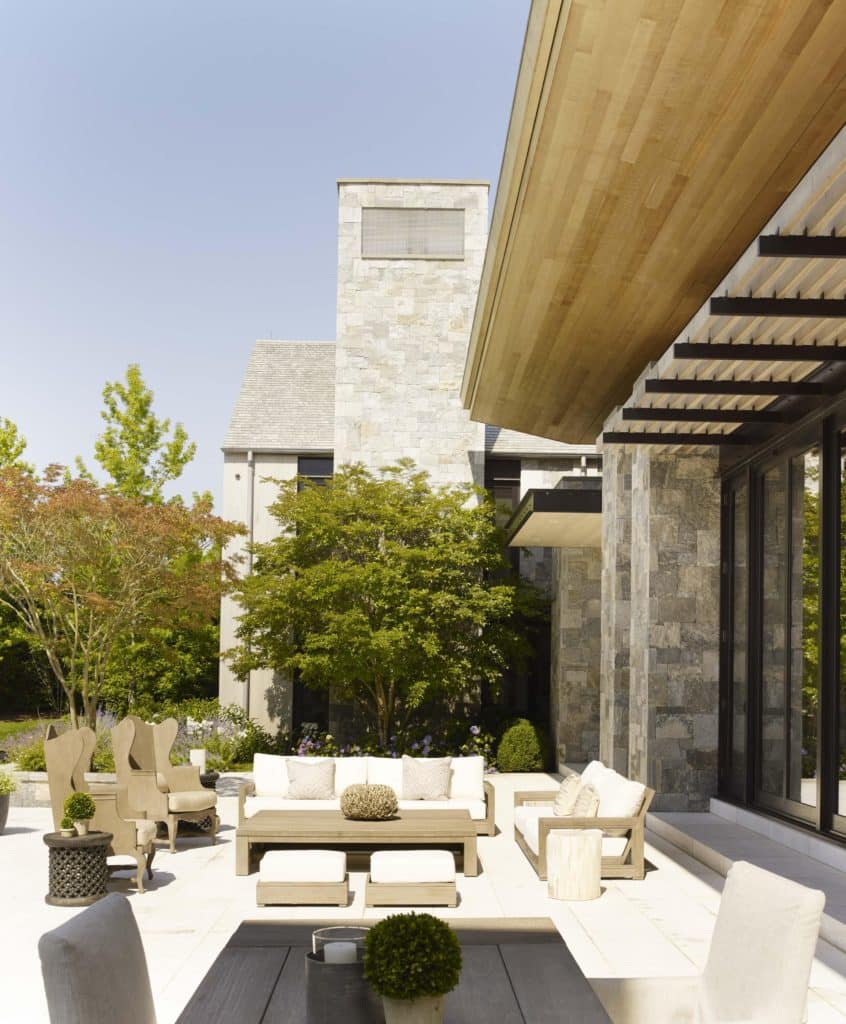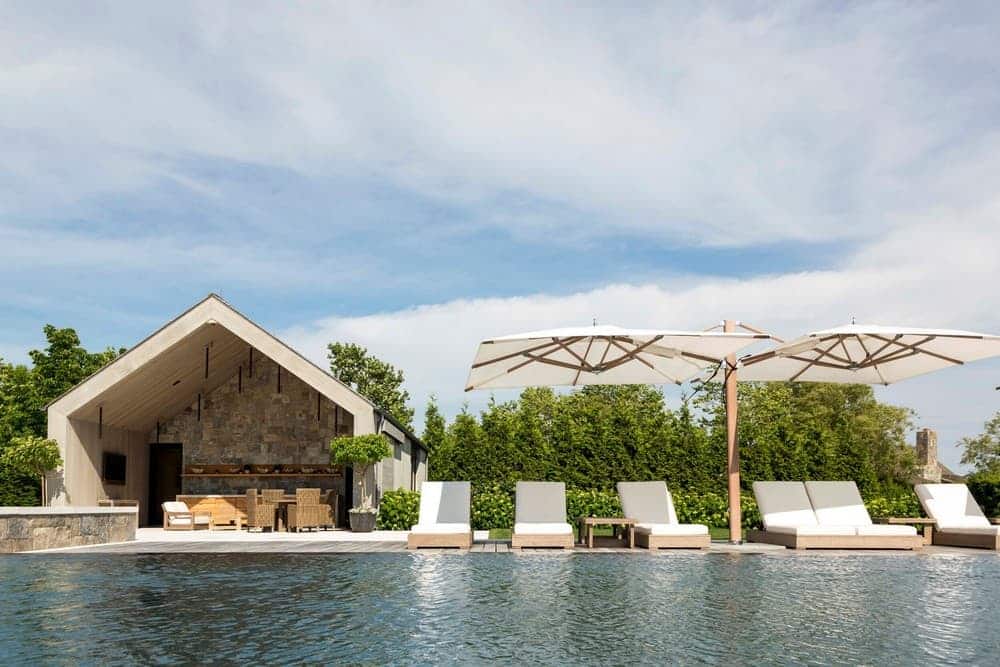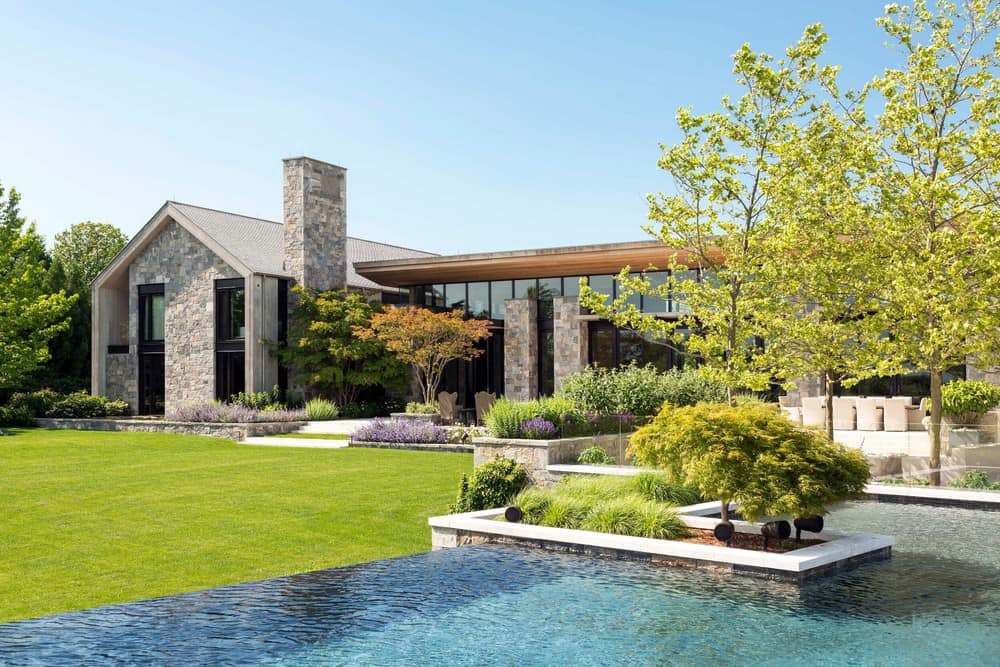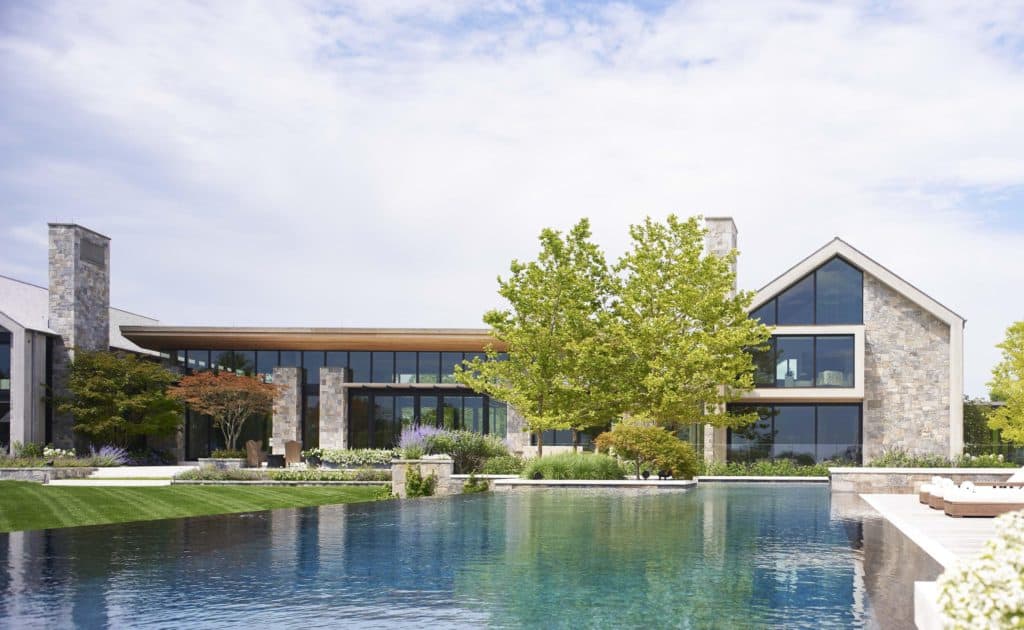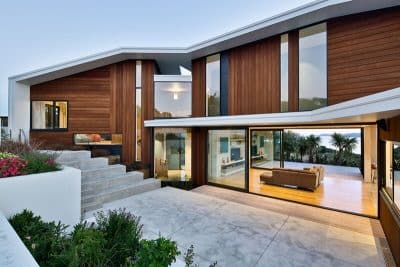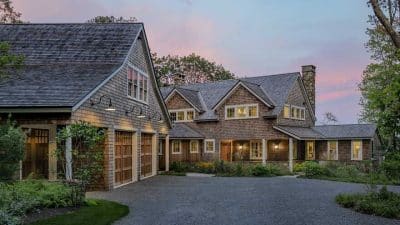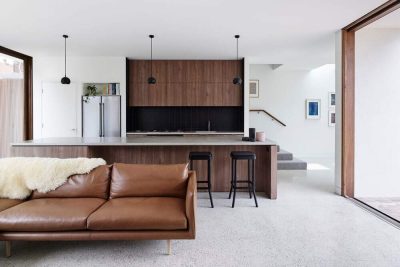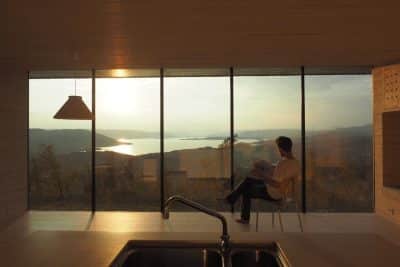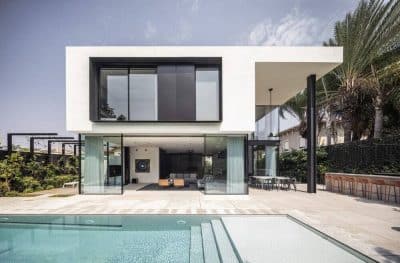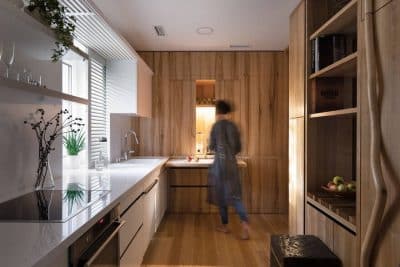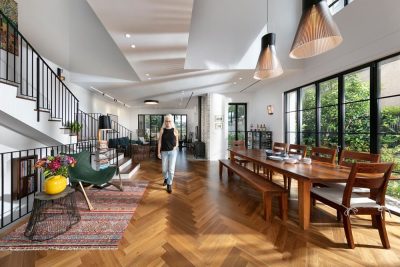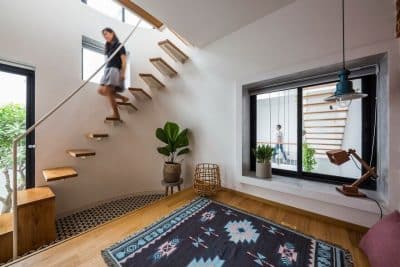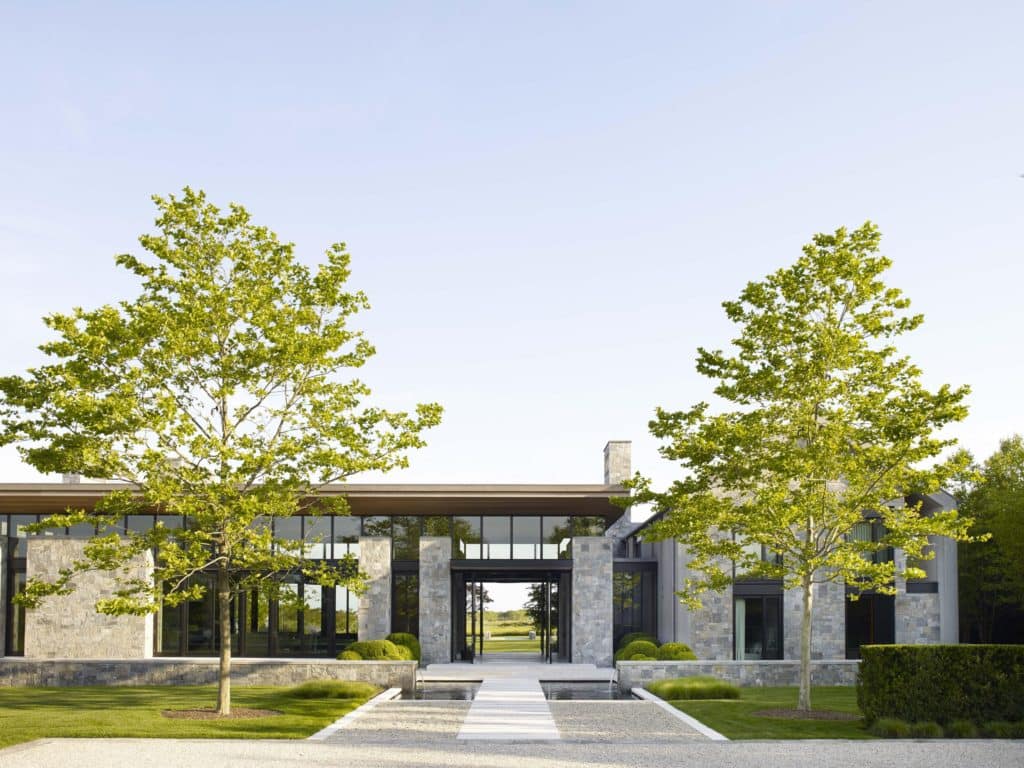
Project: Sagaponack Compound
Architecture: BMA Architects
Interior Design: Purvi Padia Design
Builder: K. Romeo Inc.
Landscape: Hollander Design
Location: Bridgehampton, New York, United States
Area: 17000 ft2
Year: 2016
Photo Credits: William Waldron
Located on a flat, four and one half acre flag lot with views of Sagg Pond, this 17,000 square foot family compound is conceived of as a ‘garden wall’ in the landscape that connects agrarian-inspired ‘outbuildings’. The garden wall comprises the main entrance to the house as well as the living and dining rooms. The outbuildings contain a family wing, guest wing, game room, pool house, and freestanding garage.
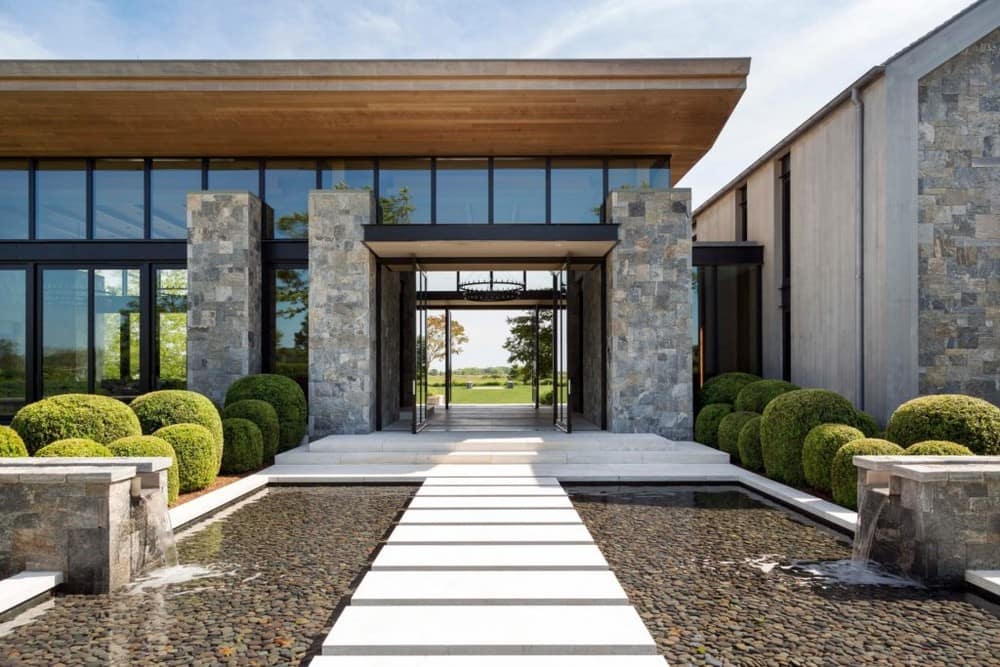
The design explores the contrasts of rustic and luxury, casual with formal, modern verse traditional. This dichotomy begins at the approach and drives under an alley of trees but through a meadow of native grasses. The contrast notably is present in the palette of exterior materials, inspired by longstanding construction techniques being utilized on simple gabled roofed structures, and yet the compositions of these materials form very modern buildings. Major materials are simple and classic and occur inside and out – cedar wood, stone and glass.
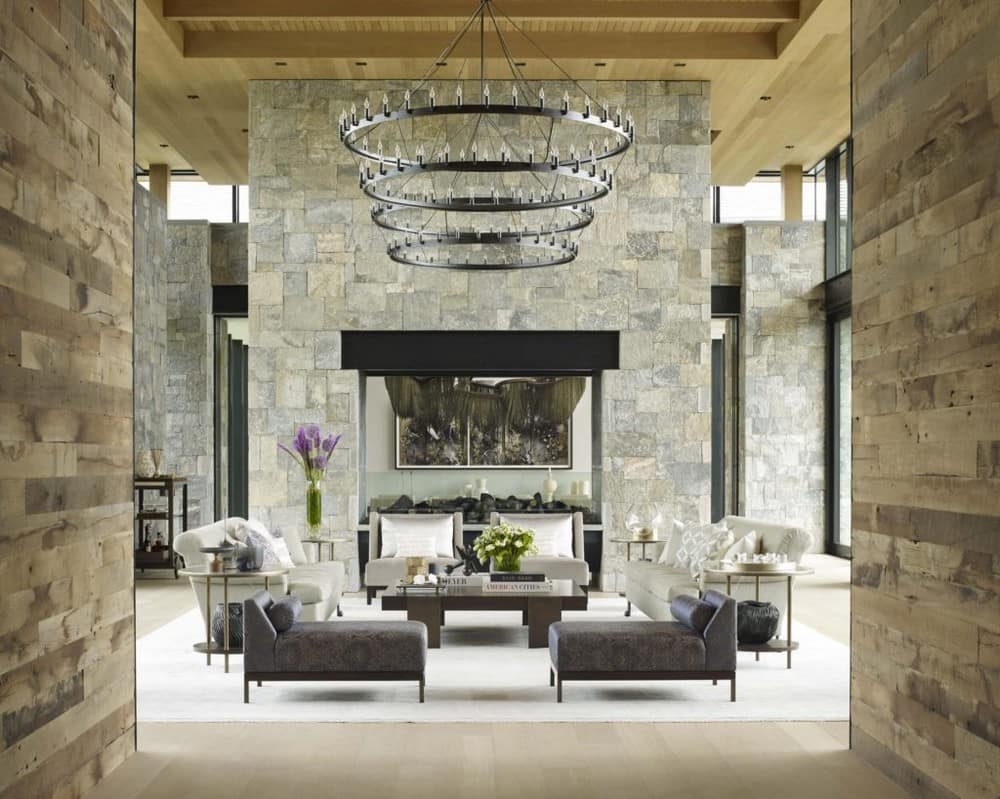
Another contrast occurs– this by foot, along a stone path appearing to float across a large reflecting pool to the main entry. To create a resortlike feel, the main entry is designed as a tall ‘lobby’ which during summer months remains open from front to back, with entry doors located on both the living room and guest wing sides of the house. As the month’s progress to more inclement weather, these doors are tucked into pockets and the previously unused doors at the front and rear openings are then closed, organizing the house into a more traditional sequence.
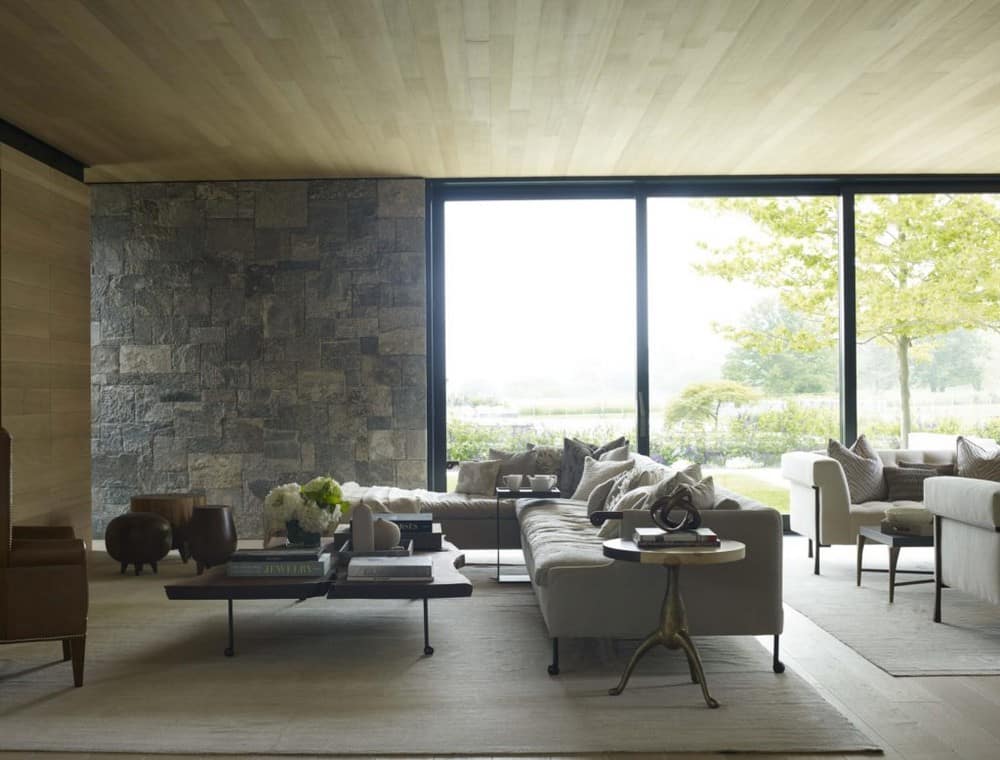
The formal living and dining room that occupies the garden wall takes advantage of a one and half story glass curtain wall on both sides, and are only interrupted by stone piers. A cedar-clad roof cantilevers and appears to float above the glass and stone structure below, supported only by a few columns, hidden inside the space.
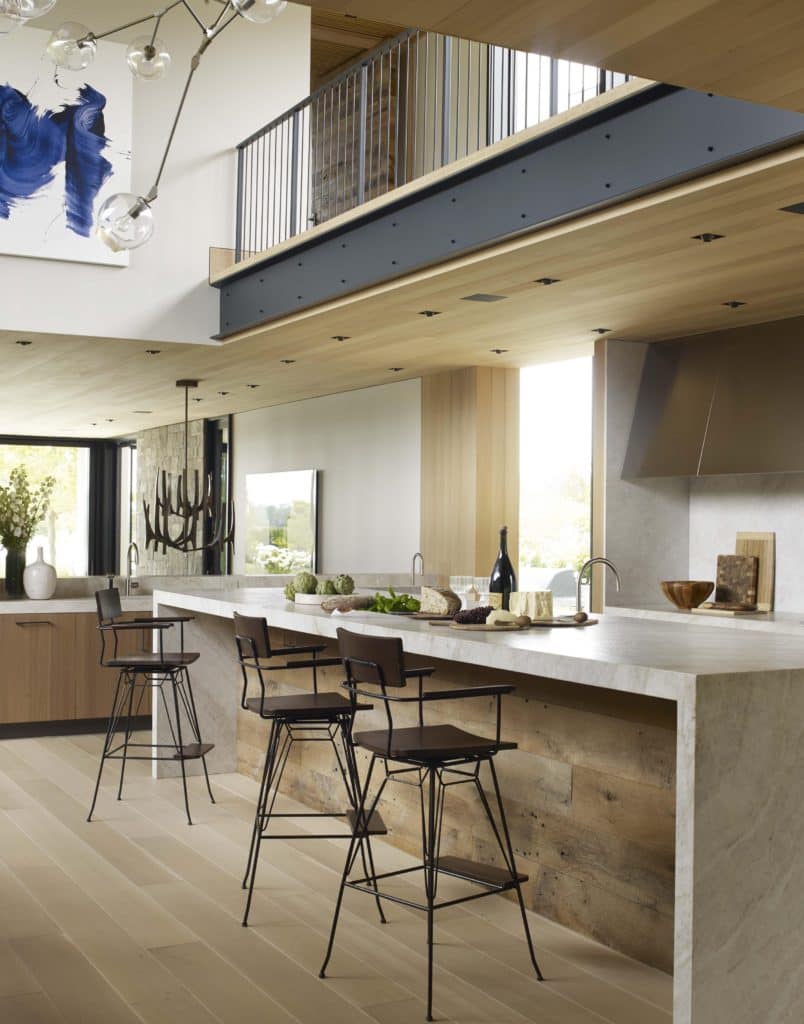
Outdoor spaces such as a screened dining pavilion, a terraced lounge, a seating area under a bosque, and the pool and spa link spaces between the outbuildings, while connecting interior spaces to the landscape.
